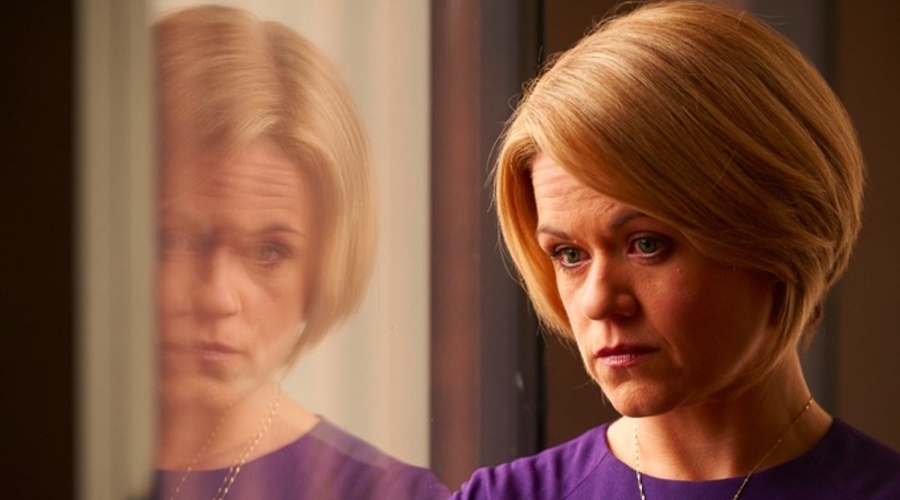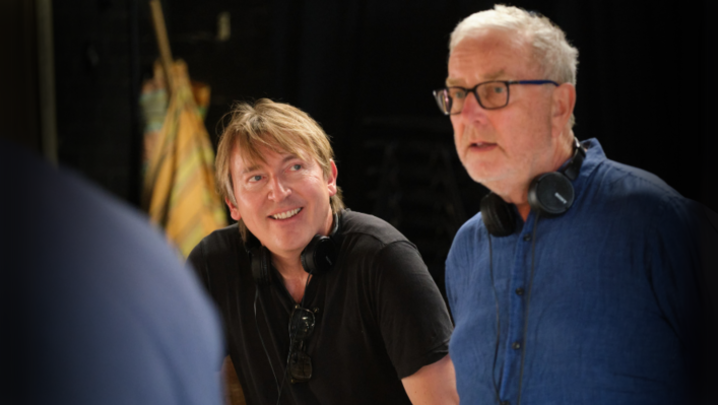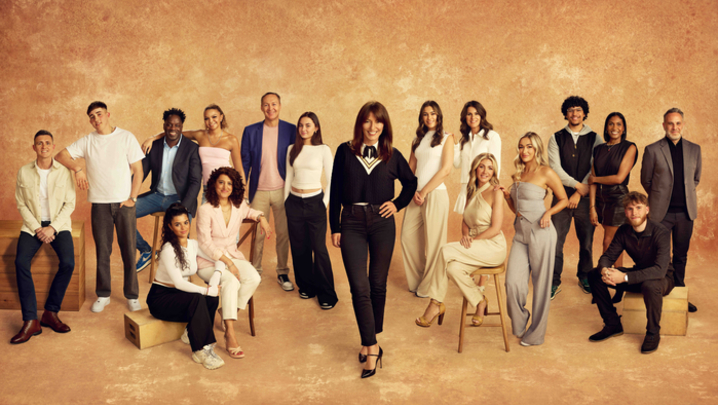“I get a bit funny talking about acting,” Sinead Keenan confesses, clearly uncomfortable when asked about her latest role in ITV drama Little Boy Blue.
“I remember watching an interview with Paul Bettany once and he said, ‘acting is like sex, it’s nice to do but embarrassing to talk about.’”
She laughs, “It’s so true.”
Keenan's acting career started on Irish soap opera Fair City before her breakout role as Nina on BBC’s Being Human. “I’ve tried to take parts that I find interesting, or well written, challenging,” she says.
“On the other hand, you have to live, you have to eat, you have to work, so it’s within that kind of jobbing actor thing, trying to balance those two things out.”
Despite her modest outlook on her career, Keenan has had an incredible twelve months. Her moving portrayal of Mel Jones in Little Boy Blue received critical acclaim, and landed her with her first RTS Programme Award for the leading role.
“Without a shadow of a doubt it was the most difficult part I’ve played,” reflects Keenan.
The hard-hitting ITV drama depicts the real events surrounding the tragic murder of 11-year-old Rhys Jones, who was killed after being caught in the gunfire between two gangs on his walk home from football practice in Croxeth, Liverpool in August 2007.
“Any work you do you want it to be good, but when it’s somebody’s real life you don’t want to put a foot wrong, especially when it surrounds such a tragedy.”
Keenan met with the family before production along with her co-star Brían F. O'Byrne and the series writer Jeff Pope, an experience she describes as “nerve racking” due to the circumstances.
“They were very lovely and open and honest about their experience. It was very generous of them to do that.”
With an open invite to visit set during the production, Rhys’s father Steve and older brother Owen came the day the courtroom scenes were being filmed. The difficult scenes, filmed in the actual courtroom used for the 2008 trial, shockingly showed the prosecution laughing and messing around during the trial.
“Nobody knew at the time how those lads were behaving in court,” explains Keenan.
“When I read the descriptions of the lads throwing paper aeroplanes and laughing I thought, that’s probably a bit of poetic license there.”
Yet Steve confirmed to the producer that the script was accurate. “Effectively, that was exactly how they behaved - it was of no consequence to them whatsoever. It was like they were up for petty theft.”
One of the most memorable scenes saw the Jones family pay tribute to their son alongside his beloved Everton FC football team and fans at Goodison Park, Liverpool, three days after the murder.
The scene was filmed during half time at a match between and saw thousands of football fans stay in their seats during half time.
“We had no idea if anyone was going to stay,” Keenan says, reflecting on the moving scenes at the football ground. “We literally had two or three minutes to do it. The director Paul (Whittington) just said, ‘right, we’re going to film from when you’re walking out…and just keep acting.’”
“There was absolutely no acting required for that day. It was incredible, it was very moving.”
The reaction of the city at the time was monumental. Thousands of members of the public, officials and football players attended Rhys’s funeral, which was held at Liverpool’s Anglican Cathedral due to the sheer number of people in the city seeking to pay their respects.
The support from the city is still as evident ten years on from the tragedy. After speaking to locals about the subject of the project while filming in Liverpool, Keenan received a strong reception.
“You say you’re doing [a drama] about Rhys and they’d get protective but once you’d said that Mel and Steve have been involved from the beginning it was great, they couldn’t do more [to help].”
Keenan, who grew up in Dublin, fondly compares her experience of the city to home, “it’s a very Irish city, they look after their own.”
The harrowing drama deals with the impact the tragedy had on the family and community, and the ongoing difficulty of dealing with grief that follows long after the trial and media attention of the crime dies down.
“It’s so horrific and just even trying to imagine it is awful. But I got to go home and see my kid, I was just pretending, it’s not my tragedy. All I could do was do [Mel] justice, hopefully.”









